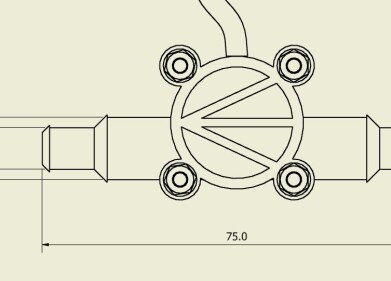Laboratory products
How is Freeze Drying Advancing?
Jan 02 2022
From antibiotics and vaccines to cell and tissue samples, freeze drying is used for a wide range of applications in the pharmaceuticals sector. Also known as lyophilisation, the process freezes samples and exposes them to low pressures. This transforms ice crystals into vapour, which is then extracted from the product.
While heat can be an effective way to extract moisture, freeze drying is especially useful in the pharmaceutical industry as it maintains the stability and activity of the sample. For products such as vaccines and medications, where avoiding molecular degradation and safeguarding active ingredients is crucial, lyophilisation is ideal.
Once the freeze drying process is complete, products can be easily stored for long periods of time and reconstituted by adding water. Extracting water also reduces the net weight of the product, making it easier and more cost effective to transport and distribute.
COVID-19 drives lyophilisation advances
Of all the drivers that have advanced lyophilisation over the past few years, the COVID-19 pandemic has been one of the most prominent. The sheer number of vaccines required, coupled with enormous challenges around storage, transport and distribution, has forced pharmaceutical giants such as Moderna and Pfizer to develop new freeze drying technologies.
A team of biomedical engineering researchers from the University at Buffalo has been exploring the concept of freeze-dried vaccines, with the findings published in the journal Science Advances. Using a liquid injection system, the team hope to address the logistical problems of rolling out the COVID-19 vaccine around the world.
Freeze dried vaccines address ultra-cold storage issue
“At the time we started this project, the first COVID-19 vaccines were just getting rolled out, and there was a lot of news about how they needed ultra-cold storage, and how that was a huge logistical challenge,” says Jonathan Lovell, senior author of the study. “Especially in low- and middle-income countries, it may not always be feasible to have that type of refrigeration infrastructure. So we started to look at whether we could make a thermostable COVID-19 vaccine using a liposome-based vaccine platform that we worked on previously.”
Just add water!
“Upon dehydration, the formula was stable at elevated temperatures, and we showed that it can withstand room temperatures and even higher temperatures for at least a week,” adds Moustafa Mabrouk, a biomedical engineering PhD student and first author of the study. “After that, we reconstituted the formula by adding water. When we tested this in mice, it induced effective antibody responses and offered protection against the COVID-19 virus.”
Want to know more about the latest lyophilisation innovations? Aimee Blakemore, a representative from Biopharma Group, explores the topic in more detail in ‘Advancements in Freeze Drying Production & the Impacts on Scale, Sustainability and Compliance’
Digital Edition
Lab Asia 31.6 Dec 2024
December 2024
Chromatography Articles - Sustainable chromatography: Embracing software for greener methods Mass Spectrometry & Spectroscopy Articles - Solving industry challenges for phosphorus containi...
View all digital editions
Events
Jan 22 2025 Tokyo, Japan
Jan 22 2025 Birmingham, UK
Jan 25 2025 San Diego, CA, USA
Jan 27 2025 Dubai, UAE
Jan 29 2025 Tokyo, Japan
.jpg)


.jpg)















